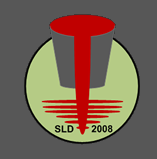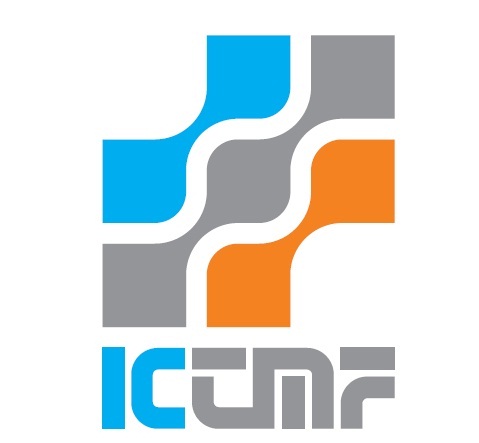
 Art Casting course is organized by the Serbian Foundrymen Society and Innovation Centre, Faculty of Technology and Metallurgy in Belgrade
Art Casting course is organized by the Serbian Foundrymen Society and Innovation Centre, Faculty of Technology and Metallurgy in Belgrade
What is Art Casting course?

This course is about developing your understanding of the ceramic shell process of bronze or other metals casting. You will be guided through a range of processes, to create a small sculpture that will be cast at the Inovation Centre, Faculty of Technology and Metallurgy, University of Belgrade. Students will learn basic wax casting and working technique, gating and venting, ceramic shell and investment molding techniques. Before that we shall give a basic understanding of foundry procedure and the techniques for doing large scale casting in iron, bronze, aluminum, and copper. We will cover basic principles of mold-making and metal-casting, furnace and kiln design and construction, ferrous and non-ferrous metallurgy and alloying. Necessary equipment, materials and tools, wax recycling operations, welding and patination techniques will be covered as well. Students will be required to complete at least 3 finished projects to be cast in bronze, iron, aluminum, or any other alloy.
By the end of this course you will be able to:
- Create your own sculpture, that can be cast into bronze
- Take home one finished project
- Make a plaster mould
- Cast from the mould in wax
- Understand the ceramic shell mould making process
- Understand the bronze and other alloys pouring process
- Patinate, chase, and weld a bronze sculpture
- Each group will have its own exhibition at the end of the course.
Course Timeline
Outline
This comprehensive course is for those who wish to learn a number of mould making and casting processes, from the fundamental principles to more advanced techniques. From the starting point of making a clay or wax original (no experience necessary) you will produce a one-piece flexible rubber mould, take castings from it and learn the principles of how to produce a multi-piece mould. You will then go on to produce a range of different moulds and casts including clay press moulds, plaster multi-piece moulds, plaster casting and finishing, hollow lost wax ceramic shell casting and life moulds from the body. This course is suitable for the complete novice or the more experienced who wishes to hone or add to existing skills.
Timeline (click for more)
(This timeline can be modified, according to the Students needs.)
1st Day
• Introduction to the basic concepts of metalcasting: metals and alloys, melting, molding and coremaking, tools and equipment, technology.
• The types of metals and alloys for casting art, the raw materials, furnaces and smelting of metals.
• Movie presentation.
• Visiting lab and familiarization with basic equipment and tools.
Time: 3-4 h
2nd Day
• History and introduction to Art Casting: famed art castings, working with the template-casting bells and cannons.
• Basic technological operations in the artistic casting.
• Movie presentation.
• Working in the lab - Making small molds in sand and casting of Al/Cu alloys cast.
Time: 5 h
3rd Day
• Principles of the hollow lost wax ceramic shell method.
• Required tools, materials and accessories: artwork, modeling and molding- clay, plaster, rubber, plastics, polystyrene, making ceramic shell for castings.
• Movie presentation.
• Working in the lab- Start an individual project. Drawing on Auto CAD - the choice of the individual models, development of a model on the 3D printer, etc.
Time: 6 h
4th Day
• Presentation of other methods for making art castings (hard and soft molding).
• Basics of welding. Methods- TIG, MIG and others. Tools and accessories for welding.
• Laboratory – demonstration on welding and further work on an individual project
Time: 12 h
5th Day
• Rapid Prototyping. The concept and methods.
• Movie presentation
• Laboratory - further work on an individual project.
Time: 5 h
6-9th Day
• Laboratory-Individual student projects. Making art cast using an impression with silicone rubber models: making models of (favorable or previously made on 3D printer), taking an impression of rubber, plaster covering, rubber waxing, plaster mold assembly, pouring wax, preparing and pouring a mixture of core, reinforcement of core , opening the mold with wax model and making the filling system on the model, making the shell- infliction the required number of layers, baking pans and set up for casting, shell casting, finishing- shaking out, sand blasting and cutting, welding, grinding and polishing, patination, waxing.
Time: 15 h
10th Day
• How to make your own art foundry castings and how much it costs - making a business plan.
• Laboratory-finish their own projects (sculptures)
Time: 3 h
11th Day
• Common-trip visit to the professional art casting foundry (lunch).
12th Day
• Awarding of certificates. The discussion, exchange of experiences, comments and suggestions. Lunch. The end of the course.
FAQ
What level is the course and do I need any particular skills?
This course is suitable for all ability levels. If you come with experience, you will be able to improve and extend your skills. If you are unused to making sculpture, you will be able to work with a found object should you wish. Support is available if you think you would benefit from help with following written or verbal instructions in English or with working independently.
How will I be taught, and will there be any work outside the class?
Students will be guided through the processes through group demonstrations and individual tuition. The emphasis is really on the individual, practical work under the supervision of an instructor. It will all play out in our laboratory.
Are there any other costs? Is there anything I need to bring?
Please wear clothing suitable for a sculpture studio and stout shoes that cover the whole foot. Please bring in sketches/ ideas and/or small objects for your small sculpture. All costs of casting a small metal sculpture are included in the course fee. You will be told how large to work. It would be advisable to bring a laptop or tablet for easy monitoring of the course.
Do I need to have an interview before I can enrol?
No. All the necessary information you will fill in the registration form, which we will send you once you sign in the course.
What feedback will I get?
You will receive regular feedback from your tutor throughout the course, as and when appropriate. At the end of the course you and your tutor are asked to assess the progress you have made.
How will I be able to give my views on the course?
Please complete the evaluation form at the end of your course. These are monitored and help us to continually improve our courses.